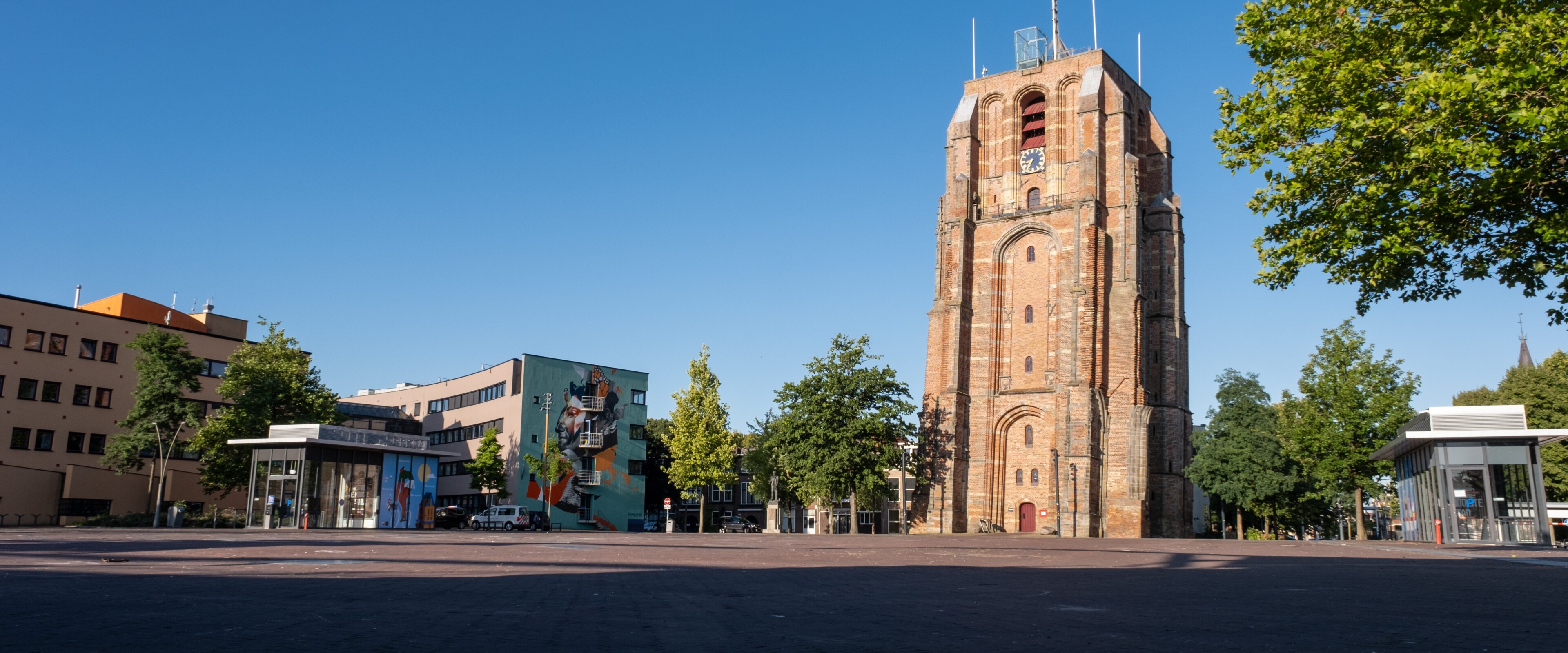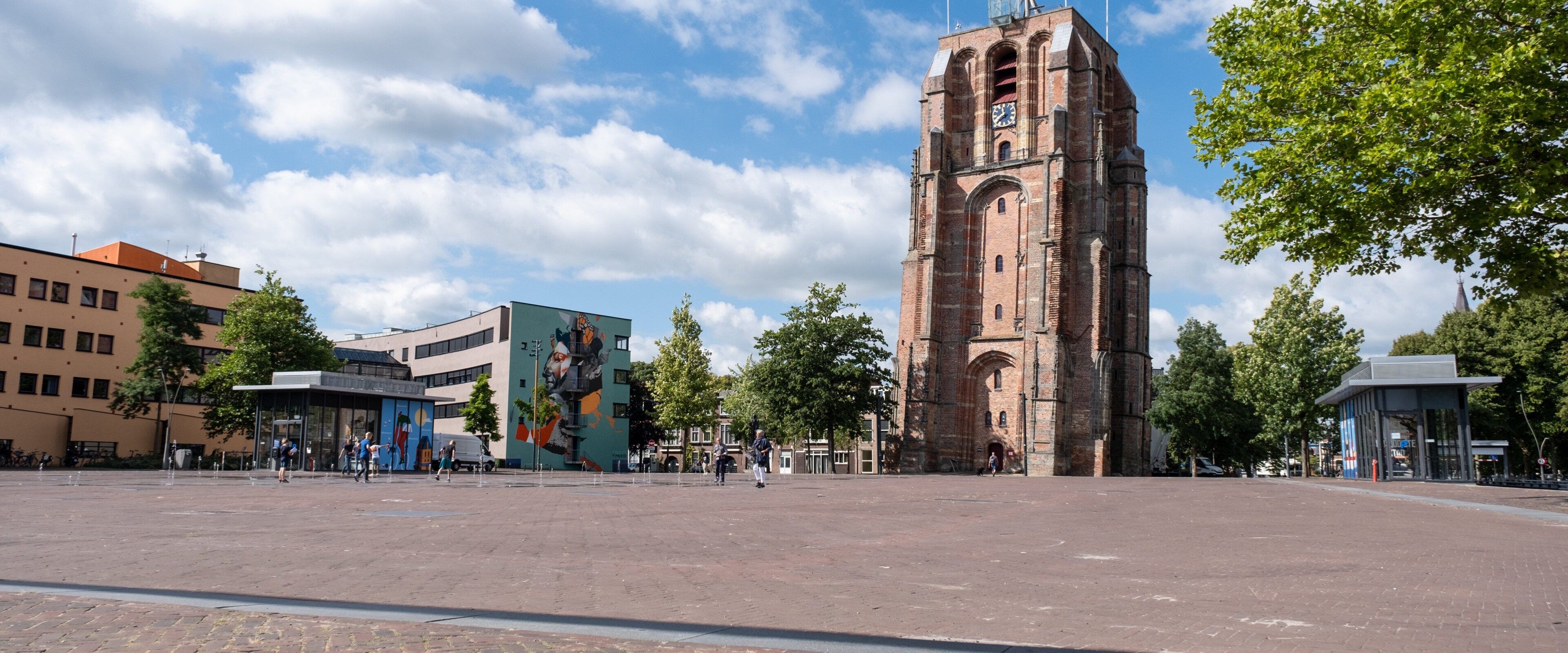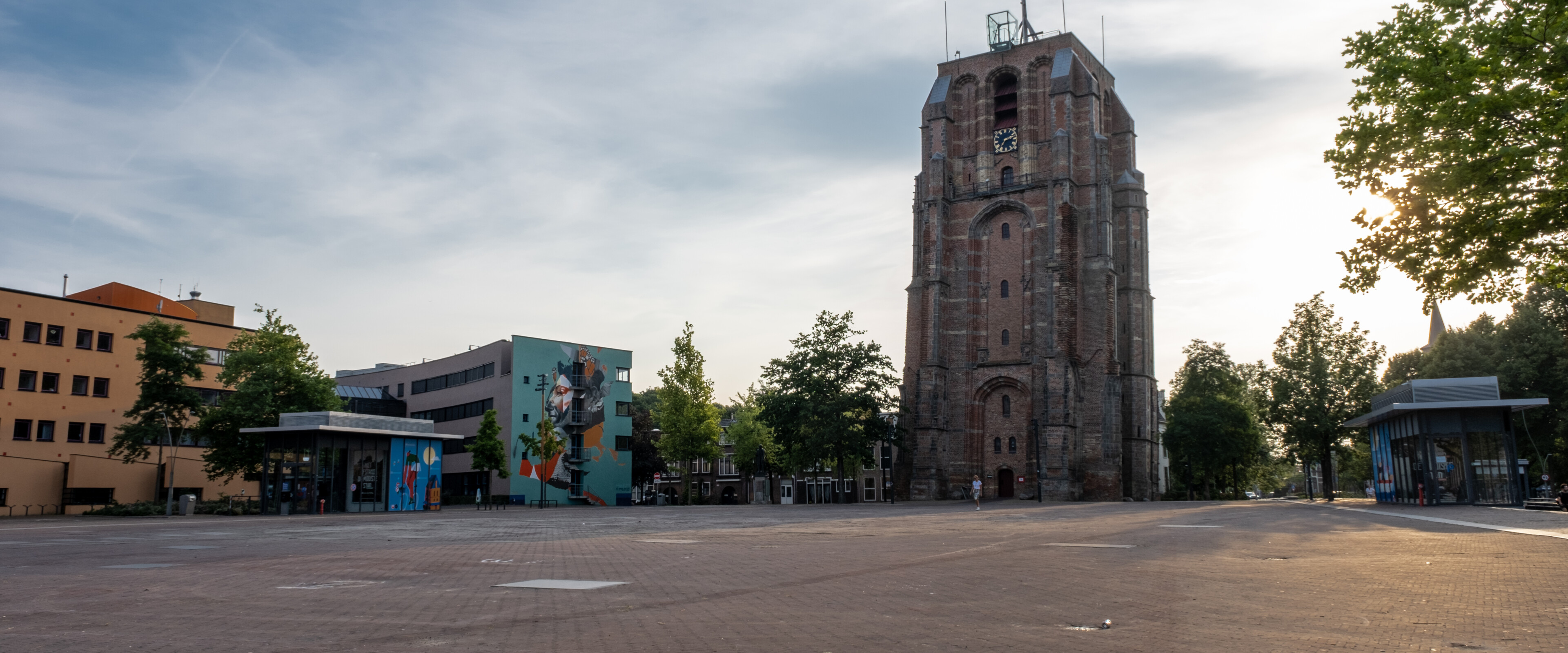Other privacy statements
In addition to this general privacy statement, we also have other privacy statements.
Job applicants, external staff and interns
If you are applying for a vacancy, or you are an external staff member or intern working for us, we will process your personal data. We will handle your personal data confidentially.
Going through the selection procedure
When you apply for a job with us, we process your personal data such as your name and address details, email address, telephone number, CV and letter of motivation in our recruitment system.
Only the recruiters, your current and future managers and members of the selection committee will be able to view your data.
We are permitted to process your personal data, for example, to invite you to a job interview.
Personal data retention period
We will retain your data following a selection procedure. If you are not selected, we will retain your data for a maximum of 4 weeks following the rejection. After that, we will erase most of the data and send you an email to confirm this.
We will retain some of the data. This is to improve our job application process. These data are not linked to a person.
If you have given permission for this, we will retain your data for 1 year following the job application. We will then use your data to find suitable vacancies. To this end, we will search for words from your CV. Storing your data does not guarantee that we will automatically match you with future vacancies. You should therefore always apply when you come across an interesting vacancy.
Inspection, rectification or erasure of data or withdrawing consent
Would you like to inspect your data, have them rectified or erased or withdraw consent? Complete the Applying for a GDPR request form.
Questions about the selection procedure
Would you like to learn more about the recruitment and selection process? Or do you have questions about the selection procedure? Contact the City of Leeuwarden.
Filing a complaint
Complaints surrounding the selection procedure? Go to the Report residential, work and living environment or file a complaint page.
Do you have a complaint about how we process your personal data? Go to the Questions or complaints about the processing of personal data page.
Police data
We employ special investigating officers (Boas). Boas supervise the public order, safety and social safety, and compliance with the law. In the event of noncompliance, Boas will take enforcement action. In carrying out these supervision and enforcement tasks, Boas process personal data.
The Police Data Act (Wpg)
The GDPR applies when Boas process personal data in carrying out their supervision task. When Boas process such data in carrying out their enforcement (police) task, they must process them in accordance with the Police Data Act (Wpg). The Wpg regulates police data and, just like the GDPR, stipulates rules on processing these data.
We use police data for various purposes, for example to draw up reports if you have committed a punishable offence or to find perpetrators of punishable offences. Camera footage can also help with this.
Inspecting your data or having it rectified or erased
Your rights under the Wpg are not the same as your rights under the GDPR. On the Inspection, rectification or erasure of data or requesting a file page, you can find more information, including on how to submit a request.
Camera monitoring
Cameras in and around municipal buildings
We have cameras in and around municipal buildings. We use these cameras to increase the safety of employees and visitors and to record instances of vandalism, theft and aggression and other incidents. We also use the cameras to check whether individuals who have been banned from entering a building comply with this ban.
Camera monitoring makes it more difficult to remain anonymous and move around freely in public spaces. The video footage also includes people who have not committed any minor or punishable offences. We have a legitimate interest in using cameras. The deployment of less far-reaching measures, such as exclusively relying on security guards, would be insufficient.
Cameras to monitor cars
Cameras have been placed in the parts of the Leeuwarden city centre with restricted car access. These cameras monitor motor vehicles that enter these areas. They recognise motor vehicles, take pictures and automatically register registration numbers.
We also use a scan car. The scan car checks paid parking locations and permit holder parking locations in the city centre and surrounding areas. It also monitors for illegal parking in the city centre, such as cars parked on the pavement. The camera in the scan car takes pictures of parked cars, automatically reads the registration numbers and forwards this information to our law enforcement officers on bicycles. These will check in person whether parking is permitted there.
Bodycams for Law Enforcement
We want our law enforcement officers to be able to work safely and effectively. That is why they use bodycams. Bodycams help to deescalate unsafe situations and reduce aggression. The cameras repeatedly briefly film the environment and then delete the footage after a minute. The camera will only save the sound and images if the law enforcement officer presses record. The law enforcement officer will always try to inform other parties when the camera is active. The law enforcement officer will decide when the bodycam is necessary.
Retention periods of recordings
Camera footage (and sound) has a legal retention period. In the event of an incident, we will retain the footage for as long as necessary to resolve the incident. In some cases, we will transfer the images to the police as evidence for a further investigation. In the event of a complaint or if someone would like to take a look at the footage, we will retain the footage for as long as is necessary to organise this.
Online investigations using public sources
We sometimes perform online investigations. For these investigations, we look for information on the Internet using public sources. We have rules for online investigations. These rules depend on the objective.
Social media monitoring
We look into how people think of our policies and communications. We also examine what questions and issues are at play among residents, entrepreneurs and visitors. This allows us to respond to current issues and improve our services and communications. We do not use personal data in our reports.
Work, income and care
We check whether the data provided by you are correct and complete. We do this if you receive or apply for a social assistance benefit. We do not need to have a special reason to carry out online investigations.
Do you receive benefits under the Social Support Act (Wmo)? In that case, we will only perform an online investigation if we have a clear reason for doing so. The purpose of these investigations is to ensure that no benefits go to people who are not entitled to them.
We are working on a protocol for online investigations. Once this is ready, you will find it on this page.
Cookies
Our website uses cookies. These ensure the website works properly and is easy to use. A cookie is a small text file that is stored in your browser when you visit the website. Cookies track your surfing behaviour and preferences, so you can more quickly find information that is interesting to you. Cookies tell us, for example:
- how much time you spent on our website;
- what device you use (for example, a computer, laptop or telephone);
- how you arrived at our website;
- which browser you use.
Accepting or rejecting cookies and changing your settings
When you first visit our website, you can accept or reject cookies or change your settings. Essential cookies will always be active. These are necessary for the proper functioning of the website. We will not store your IP address, so we will not be able to identify you.
You can activate preference cookies and analytical cookies yourself. You can disable cookies via the browser settings. In these settings, you can also delete previously stored information.
If you do not want any cookies, change the settings in your browser to send a warning or to reject all cookies.
Cookies on social media and other websites
Our website has buttons linking to our social media and other websites. These social media and websites can also place cookies. We have no influence over how they do so.
For more information about these cookies, please refer to their privacy statements and general terms and conditions.
More information
Go to the page Privacyverklaring.
Quick to:
Job applicants, external staff and interns
If you are applying for a vacancy, or you are an external staff member or intern working for us, we will process your personal data. We will handle your personal data confidentially.
Going through the selection procedure
When you apply for a job with us, we process your personal data such as your name and address details, email address, telephone number, CV and letter of motivation in our recruitment system.
Only the recruiters, your current and future managers and members of the selection committee will be able to view your data.
We are permitted to process your personal data, for example, to invite you to a job interview.
Personal data retention period
We will retain your data following a selection procedure. If you are not selected, we will retain your data for a maximum of 4 weeks following the rejection. After that, we will erase most of the data and send you an email to confirm this.
We will retain some of the data. This is to improve our job application process. These data are not linked to a person.
If you have given permission for this, we will retain your data for 1 year following the job application. We will then use your data to find suitable vacancies. To this end, we will search for words from your CV. Storing your data does not guarantee that we will automatically match you with future vacancies. You should therefore always apply when you come across an interesting vacancy.
Inspection, rectification or erasure of data or withdrawing consent
Would you like to inspect your data, have them rectified or erased or withdraw consent? Complete the Applying for a GDPR request form.
Questions about the selection procedure
Would you like to learn more about the recruitment and selection process? Or do you have questions about the selection procedure? Contact the City of Leeuwarden.
Filing a complaint
Complaints surrounding the selection procedure? Go to the Report residential, work and living environment or file a complaint page.
Do you have a complaint about how we process your personal data? Go to the Questions or complaints about the processing of personal data page.
Police data
We employ special investigating officers (Boas). Boas supervise the public order, safety and social safety, and compliance with the law. In the event of noncompliance, Boas will take enforcement action. In carrying out these supervision and enforcement tasks, Boas process personal data.
The Police Data Act (Wpg)
The GDPR applies when Boas process personal data in carrying out their supervision task. When Boas process such data in carrying out their enforcement (police) task, they must process them in accordance with the Police Data Act (Wpg). The Wpg regulates police data and, just like the GDPR, stipulates rules on processing these data.
We use police data for various purposes, for example to draw up reports if you have committed a punishable offence or to find perpetrators of punishable offences. Camera footage can also help with this.
Inspecting your data or having it rectified or erased
Your rights under the Wpg are not the same as your rights under the GDPR. On the Inspection, rectification or erasure of data or requesting a file page, you can find more information, including on how to submit a request.
Camera monitoring
Cameras in and around municipal buildings
We have cameras in and around municipal buildings. We use these cameras to increase the safety of employees and visitors and to record instances of vandalism, theft and aggression and other incidents. We also use the cameras to check whether individuals who have been banned from entering a building comply with this ban.
Camera monitoring makes it more difficult to remain anonymous and move around freely in public spaces. The video footage also includes people who have not committed any minor or punishable offences. We have a legitimate interest in using cameras. The deployment of less far-reaching measures, such as exclusively relying on security guards, would be insufficient.
Cameras to monitor cars
Cameras have been placed in the parts of the Leeuwarden city centre with restricted car access. These cameras monitor motor vehicles that enter these areas. They recognise motor vehicles, take pictures and automatically register registration numbers.
We also use a scan car. The scan car checks paid parking locations and permit holder parking locations in the city centre and surrounding areas. It also monitors for illegal parking in the city centre, such as cars parked on the pavement. The camera in the scan car takes pictures of parked cars, automatically reads the registration numbers and forwards this information to our law enforcement officers on bicycles. These will check in person whether parking is permitted there.
Bodycams for Law Enforcement
We want our law enforcement officers to be able to work safely and effectively. That is why they use bodycams. Bodycams help to deescalate unsafe situations and reduce aggression. The cameras repeatedly briefly film the environment and then delete the footage after a minute. The camera will only save the sound and images if the law enforcement officer presses record. The law enforcement officer will always try to inform other parties when the camera is active. The law enforcement officer will decide when the bodycam is necessary.
Retention periods of recordings
Camera footage (and sound) has a legal retention period. In the event of an incident, we will retain the footage for as long as necessary to resolve the incident. In some cases, we will transfer the images to the police as evidence for a further investigation. In the event of a complaint or if someone would like to take a look at the footage, we will retain the footage for as long as is necessary to organise this.
Online investigations using public sources
We sometimes perform online investigations. For these investigations, we look for information on the Internet using public sources. We have rules for online investigations. These rules depend on the objective.
Social media monitoring
We look into how people think of our policies and communications. We also examine what questions and issues are at play among residents, entrepreneurs and visitors. This allows us to respond to current issues and improve our services and communications. We do not use personal data in our reports.
Work, income and care
We check whether the data provided by you are correct and complete. We do this if you receive or apply for a social assistance benefit. We do not need to have a special reason to carry out online investigations.
Do you receive benefits under the Social Support Act (Wmo)? In that case, we will only perform an online investigation if we have a clear reason for doing so. The purpose of these investigations is to ensure that no benefits go to people who are not entitled to them.
We are working on a protocol for online investigations. Once this is ready, you will find it on this page.
Cookies
Our website uses cookies. These ensure the website works properly and is easy to use. A cookie is a small text file that is stored in your browser when you visit the website. Cookies track your surfing behaviour and preferences, so you can more quickly find information that is interesting to you. Cookies tell us, for example:
- how much time you spent on our website;
- what device you use (for example, a computer, laptop or telephone);
- how you arrived at our website;
- which browser you use.
Accepting or rejecting cookies and changing your settings
When you first visit our website, you can accept or reject cookies or change your settings. Essential cookies will always be active. These are necessary for the proper functioning of the website. We will not store your IP address, so we will not be able to identify you.
You can activate preference cookies and analytical cookies yourself. You can disable cookies via the browser settings. In these settings, you can also delete previously stored information.
If you do not want any cookies, change the settings in your browser to send a warning or to reject all cookies.
Cookies on social media and other websites
Our website has buttons linking to our social media and other websites. These social media and websites can also place cookies. We have no influence over how they do so.
For more information about these cookies, please refer to their privacy statements and general terms and conditions.
More information
Go to the page Privacyverklaring.


